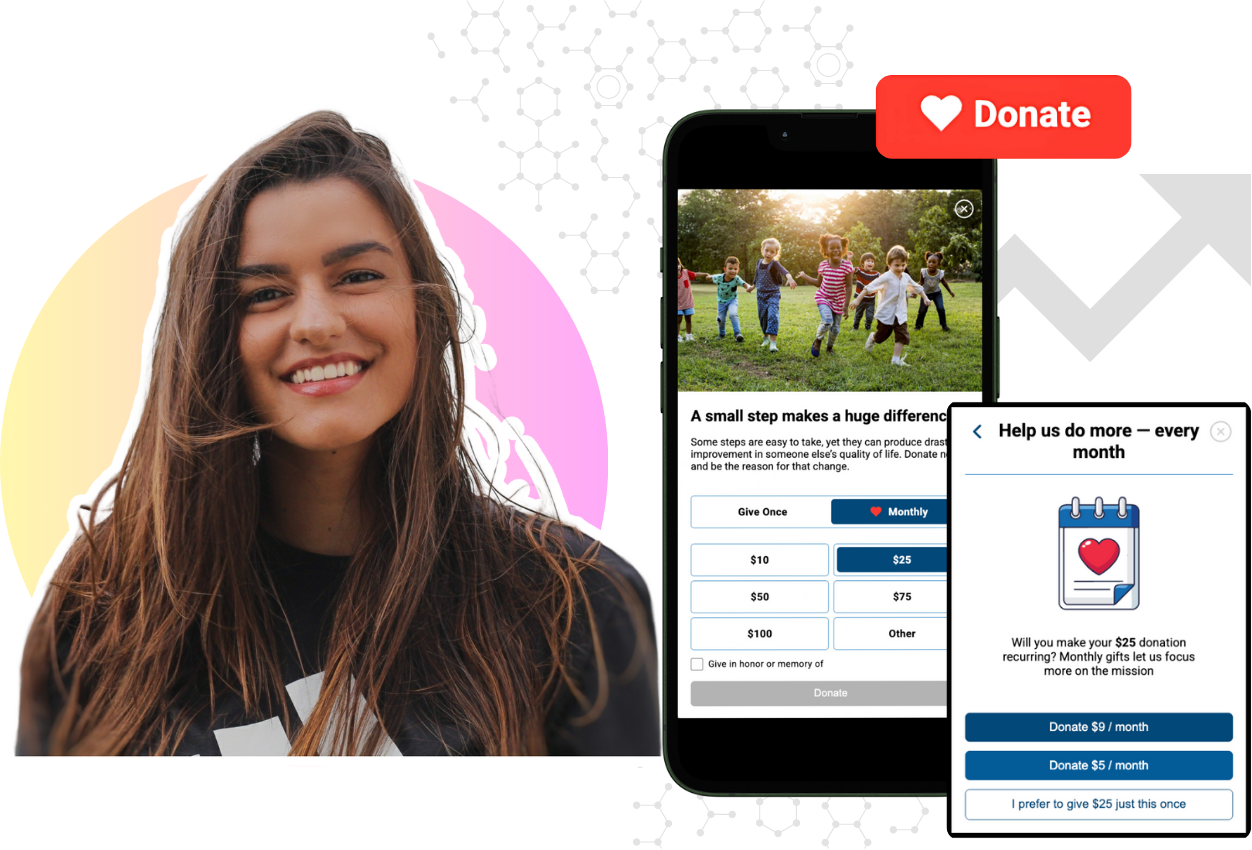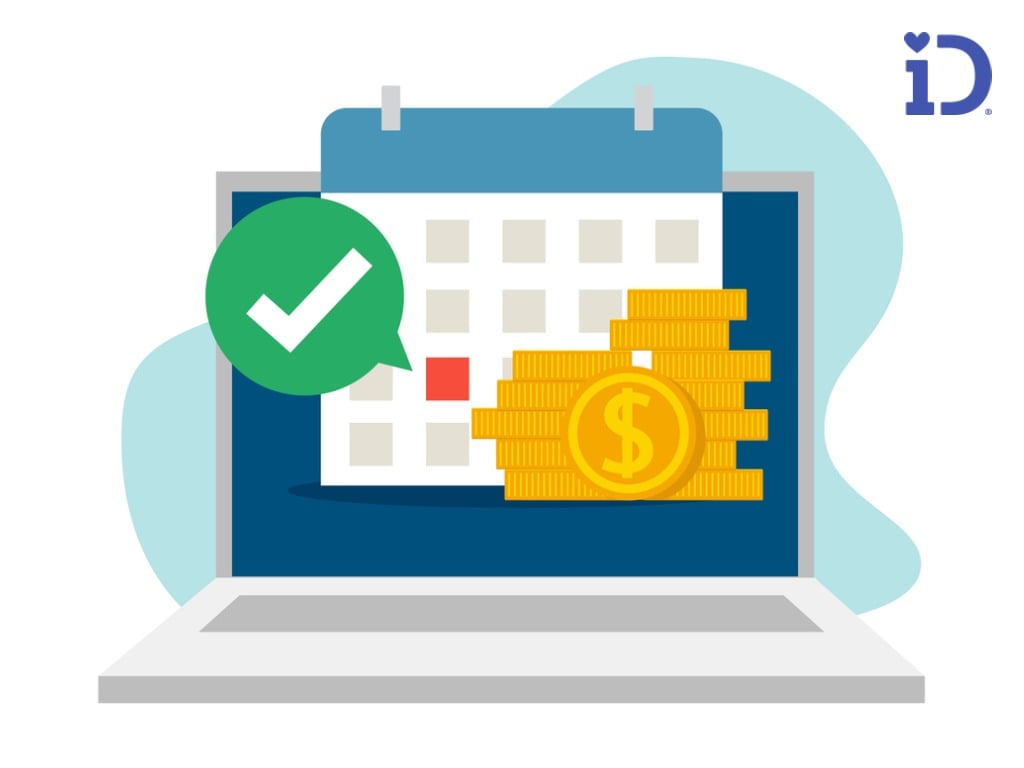Your Guide to Text-to-Give Fundraising Success
These days, smartphones have the power to do almost anything. From little things like checking your email or watching live TV, to controlling your...

Mobile-First Pop-Up Donation Form
Launch mobile-first pop-up forms in minutes, use built-in tools to capture more donations, and optimize the giving experience—no dev team required.
New to online donation pages for your nonprofit? Start here.
Donation page A/B testing - no science degree needed.
Keep your donation page loading fast - and drive higher conversions.

The 4 Types of Online Donation Experiences
89% of donors leave without giving. Learn how to use the right donation form to close the gap and boost conversions.

As a quick exercise, think about if you had 100 people give to your nonprofit one time. While that may be 100 more people than you had before, what if they never gave to your nonprofit again?
The donations you received from that group can help to pay off some normal everyday expenses, but they won’t last for the sustained growth you are seeking. To keep growing, you’d then need to find another group of 100 people, and then possibly another. Constantly churning out messaging to find a new group of people to replace your previous donor group is costly and time consuming.
The M+R Benchmarks 2022 study found that nonprofit spending on digital ads increased by 19% in 2021, with nonprofits spending an average of $0.06 for every dollar raised in online revenue.1 In the same study, nonprofits are also spending more time with email and social media messaging.
To keep from that constant work overload and start capturing sustained growth, you need recurring donations.
Recurring donations are simply donations from donors who enroll in a scheduled giving program. It could be monthly, bi-monthly, or any regular schedule. It allows the donor peace of mind that they are regularly giving to your mission.
For yourself as the nonprofit, it gives you ease of knowing that you are receiving regular donations and no longer have to send out messaging to capture them again. And once your donors turn into recurring donors, the numbers show the benefits in receiving monthly gifts.
According to the M+R Benchmarks 2022 report,1 online-specific retention for brand new donors increased by 23% in 2021. For prior donors, that number topped at 60%, closely matching Giving USA’s findings of 64%.2 Along with those increases in number of donors, there was also a rise in revenue. Overall, revenue from monthly giving increased by 3%, while monthly giving itself accounted for 22% of all fundraising in 2021.
Putting the numbers together, recurring donations are your chance to not only receive more donors, but also more donations. To make it work, not much is needed.
iDonate has made it so simple for nonprofits to easily encourage new donors to become recurring donors right as they are donating online. Simply turn on our recurring prompt feature within your giving form and the iDonate platform takes care of the rest. It’s a simple ask, but sometimes that’s all it takes.
In fact, one study done by NextAfter showed that by simply reinforcing and clarifying the option of a one-time or monthly gift, there was a noticeable lift in conversation rate and average gift size.3 This was done by making the options stand out more and adding in “impact language” to the monthly gift option, letting the donor know immediately what their donation will do.
It worked for ZOE International who made that simple change on their form and has seen a 20% increase in recurring revenue since the fall of 2020.
Recurring donations through the iDonate platform is built to secure legacies of generosity for generations.
2 Blackbaud: Online Giving Trends
3 NextAfter: How clarifying and reinforcing the monthly ask affected revenue per visitor

These days, smartphones have the power to do almost anything. From little things like checking your email or watching live TV, to controlling your...

If you haven’t dipped your organization’s toes into the noncash waters, or if you’re already promoting noncash donations but you’re bone dry when it...

The demand for funding resources will continue to grow the larger your nonprofit gets. As it does, finding additional streams of funding beyond your...